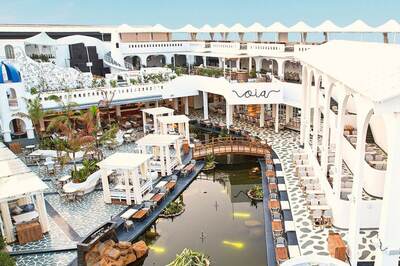
views
TUNIS: Algeria’s President Abdelmadjid Tebboune seeks to prevent any resumption of the mass protests that shook the state last year with a referendum on a new constitution.
Here is a timeline of main events in the political upheaval.
2019
* February – Tens of thousands of protesters take to the streets when it becomes clear veteran president Abdelaziz Bouteflika, then 81, will run again for president.
* March – As daily protests grow, and 1 million people march in Algiers and other cities, Bouteflika tries to mollify his opponents by promising a new constitution after his re-election, followed by a new vote in which he would not stand.
* April – Army chief Lieutenant General Ahmed Gaed Salah steps in, using a televised speech to urge Bouteflika to resign, which he does on April 2. The presidential election, initially scheduled for April, then for July, is postponed indefinitely.
* May and June – With no let-up in the weekly Tuesday and Friday protests, the authorities begin detaining senior figures, including many Bouteflika allies and top businessmen, on corruption charges.
Those arrested include Bouteflika’s younger brother, Said, who had acted as de facto regent, the once-untouchable security chief, Mohamed Mediene, and two former prime ministers, Ahmed Ouyahia and Abdelmalek Sellal.
* July – Police arrest dozens of protesters for waving flags marked with Berber symbols, accusing them of undermining unity, as tens of thousands continue to march, undeterred by summer heat or the Muslim fasting month of Ramadan.
* September – At Gaed Salah’s urging, the interim president, Abdelkader Bensalah, announces that the election will now be held in December, angering the protesters who immediately reject the coming vote.
At the first major trial for former senior officials, both Said Bouteflika and Mediene are given 15-year jail sentences, cementing the army’s position as the most powerful part of the ruling hierarchy.
Meanwhile, police start arresting more prominent opposition figures, including Karim Tabou.
* November – As the election campaign officially starts, the number of protesters begins to rise again and the police start cracking down on demonstrations against the coming vote.
Protesters hang bags of garbage in spaces reserved for election materials and a court holds rapid trials to sentence people to months in prison for disrupting campaigning.
* December – A court sentences the two former prime ministers to 15 and 12-year prison terms days before the election.
* With protests across Algeria, former Prime Minister Abdelmadjid Tebboune is elected president with 58% of the vote, though official figures show only 40% of voters took part.
Gaed Salah suddenly dies of a heart attack on Dec. 23 and huge crowds attend his funeral procession in Algiers as Tebboune names another general armed forces chief.
2020
* January – Tebboune puts a new government in place, offers dialogue to protesters, frees many detainees and sets up a commission to amend the constitution to give parliament and the judiciary more power.
* March – The protests, which had continued weekly for more than a year, are halted by a lockdown to prevent the coronavirus pandemic spreading.
* August – Tebboune sets a Nov. 1 date for a referendum on changes to the constitution, hoping to use the vote as a way to move on from the political upheaval.
(Compiled by Angus McDowall, Editing by William Maclean)
Disclaimer: This post has been auto-published from an agency feed without any modifications to the text and has not been reviewed by an editor



















Comments
0 comment